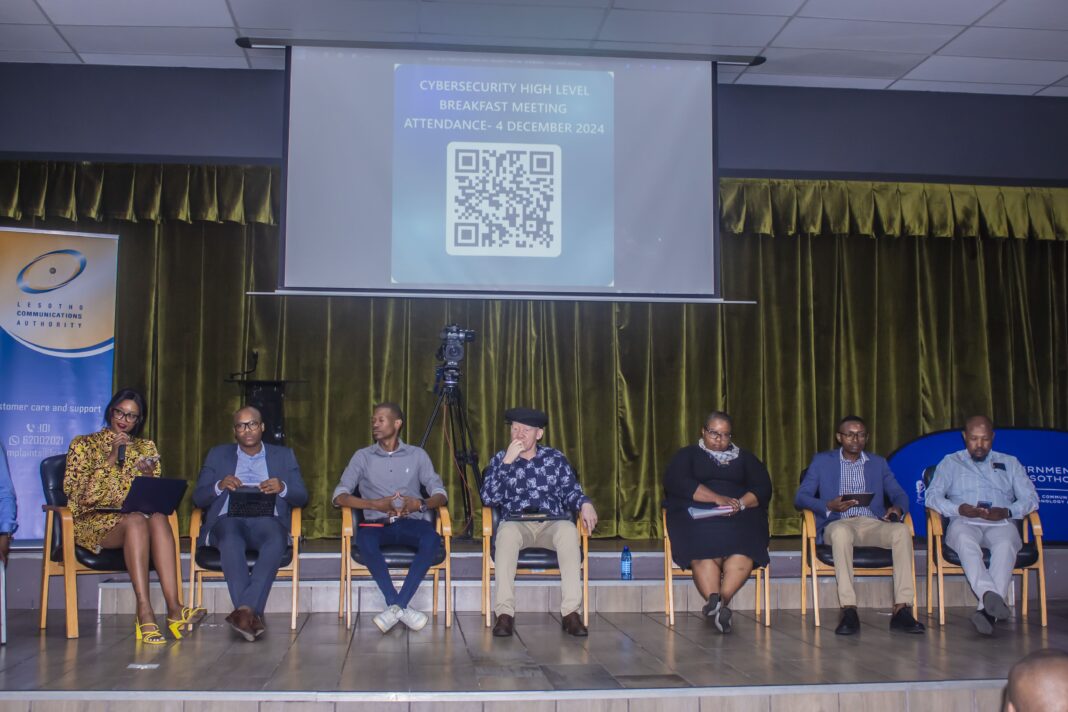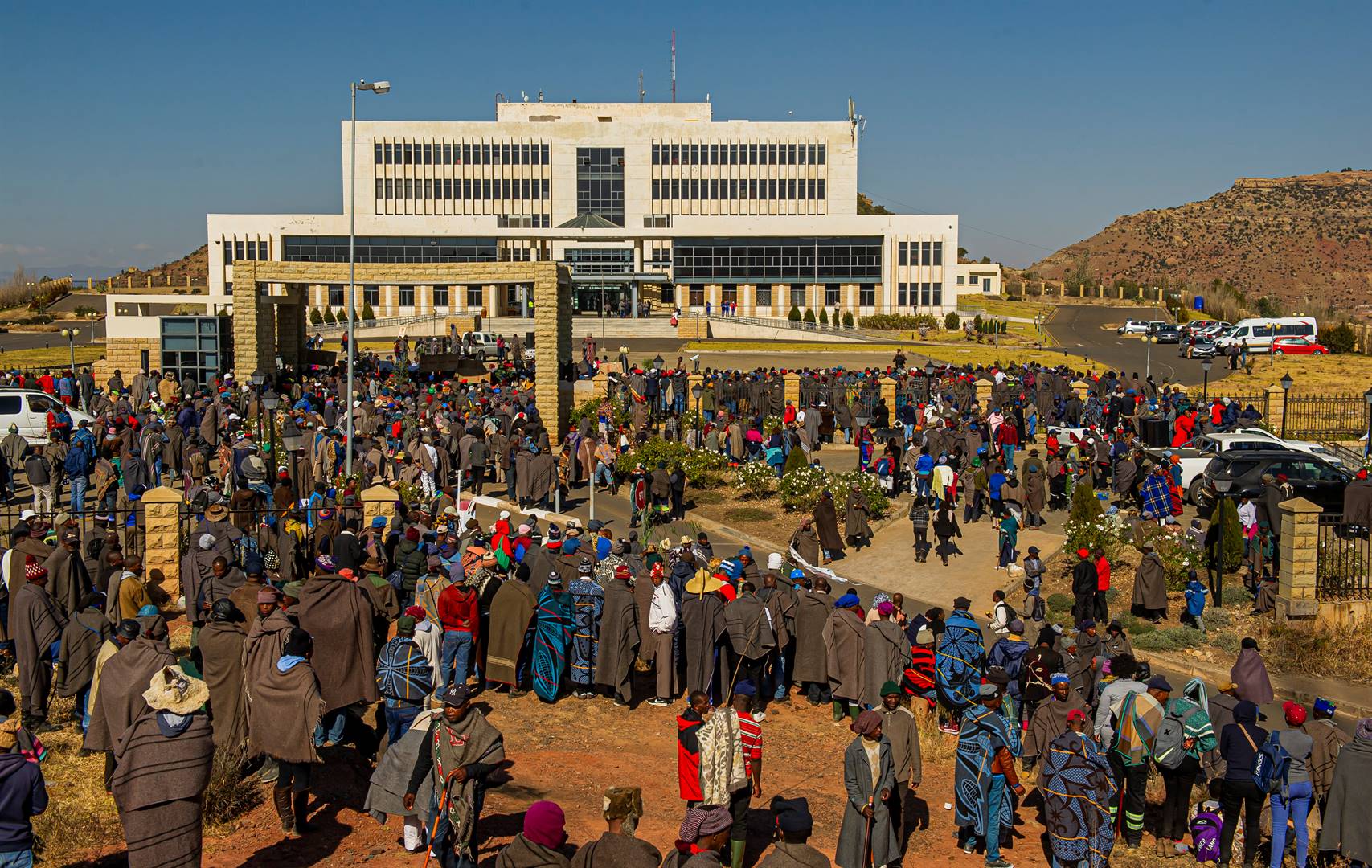… Reject ‘unconstitutional clauses’ in Cybersecurity Bill
Kabelo Masoabi
The Media Institute of Southern Africa (MISA) Lesotho Chapter and the Transformation Resource Centre (TRC) have once again firmly opposed controversial sections of the Computer Crime and Cybersecurity Bill during a consultation meeting held at Victory Hall in Maseru this week.
The proposed law, intended to address cybercrimes and ensure cybersecurity, has been met with consistent resistance from media practitioners and human rights defenders, who argue that it contains unconstitutional clauses that threaten freedom of expression and other fundamental rights.
The Ministry of Information, Communications, Science, and Innovation has been pushing for the enactment of this legislation, citing the need to regulate cyberspace and combat disinformation. However, journalists and civil society organisations, specifically TRC, view the bill as a veiled attempt to stifle dissent and restrict media freedom.
Six key sections – 24, 26, 38, 39, 43, and 59 – have drawn particular criticism for granting the state sweeping surveillance powers and imposing punitive measures on individuals found in possession of confidential state documents.
Critics argue these provisions could drive journalists to self-censorship, undermining their role as watchdogs of democracy.
“Passing this bill without amending the contentious clauses will deny citizens their right to verified, independent information and push media practitioners into self-censorship,” said MISA Lesotho Director Ntsukunyane Lekhetho.
Investigative journalism, according to MISA Lesotho and TRC, a cornerstone of accountability and transparency, faces severe threats under the proposed law.
MISA Lesotho has expressed concerns that whistle-blowers, a vital source of information, will be silenced for fear of legal repercussions.
“Clauses from Section 21 to 59 contain provisions that threaten press freedom and investigative reporting,” MISA noted. “While we support the need for cybersecurity legislation, these sections must be revisited to ensure they do not infringe on constitutional freedoms.”
Journalists at the meeting voiced similar concerns.
Freelance journalist and former MISA Lesotho chairperson Nkoale Tšoana suggested convening a targeted meeting with security agencies, civil society, media representatives, and other stakeholders to address the bill’s problematic clauses.
“Some provisions, such as the one on illegal access to information, are ambiguous and open to misuse. We have seen journalists harassed by police in the past. This bill, as it stands, would legitimise such actions,” said Tšoana.
A report by the MNN Centre for Investigative Journalism last year highlighted the economic vulnerability of journalists in Lesotho. It warned that the hefty fines and imprisonment penalties proposed in the bill, up to M5,000,000 or five years in prison, would effectively criminalise journalism.
Minister of Communications, Nthati Moorosi, urged stakeholders to expedite discussions, emphasising that the absence of a cybersecurity law discourages potential investors.
“Without this legislation, businesses operating in the technology space feel unprotected and hesitant to invest in Lesotho,” Moorosi said.
Chief Legal Officer in the ministry, ‘Makamohelo Mofilikoane, added that Lesotho is lagging behind its Southern African Development Community (SADC) counterparts, all of whom have implemented a model cybersecurity law.
Mofilikoane argued that the lack of legal protection leaves cybercrime victims vulnerable.
Stakeholders agreed to engage with the parliamentary portfolio committee for further deliberations.
While the government insists on the urgent need for cybersecurity legislation, MISA Lesotho and TRC remain resolute in their demand for a law that upholds constitutional rights and balances the interests of all stakeholders.
In an op-ed published in September this year by the South Africa’s Daily Maverick, Herbert Moyo, a journalist and editor, said this Bill, previously rejected in 2020 and again in 2022 due to its unconstitutional provisions, signals a troubling return to oppressive governance, jeopardising press freedom, citizens’ right to privacy, and freedom of expression.
Moyo stated that Lesotho cannot afford to slide back into authoritarianism under the guise of ensuring cybersecurity.
“With its sweeping and vague definitions of ‘classified’ information, this Bill criminalises the work of journalists and whistleblowers who expose government corruption,” he said.
“Punishing journalists with up to 17 years in prison or fines reaching M12 million ($673,800) for possessing or reporting on information deemed classified by the government is not aimed at protection – it is a blatant attempt to stifle accountability and silence dissent,” he added.
Moyo further mentioned that the public’s right to know the truth was being sacrificed at the altar of state control, creating an atmosphere of fear that is antithetical to the principles of a free press and right to information.
“Moreover, the Bill’s provisions to reintroduce criminal defamation into Lesotho’s statutes, despite a landmark Constitutional Court ruling outlawing it in 2018, are a direct affront to judicial independence and the constitution itself.
“In a democratic society, the courts’ authority should be respected, not undermined by sneakily reintroducing laws or clauses that have been deemed unconstitutional.”
He indicated that the government’s move raised serious concerns about the government’s respect for the rule of law.
Summary
- The Media Institute of Southern Africa (MISA) Lesotho Chapter and the Transformation Resource Centre (TRC) have once again firmly opposed controversial sections of the Computer Crime and Cybersecurity Bill during a consultation meeting held at Victory Hall in Maseru this week.
- While the government insists on the urgent need for cybersecurity legislation, MISA Lesotho and TRC remain resolute in their demand for a law that upholds constitutional rights and balances the interests of all stakeholders.
- In an op-ed published in September this year by the South Africa’s Daily Maverick, Herbert Moyo, a journalist and editor, said this Bill, previously rejected in 2020 and again in 2022 due to its unconstitutional provisions, signals a troubling return to oppressive governance, jeopardising press freedom, citizens’ right to privacy, and freedom of expression.

Your Trusted Source for News and Insights in Lesotho!
At Newsday Media, we are passionate about delivering accurate, timely, and engaging news and multimedia content to our diverse audience. Founded with the vision of revolutionizing the media landscape in Lesotho, we have grown into a leading hybrid media company that blends traditional journalism with innovative digital platforms.









